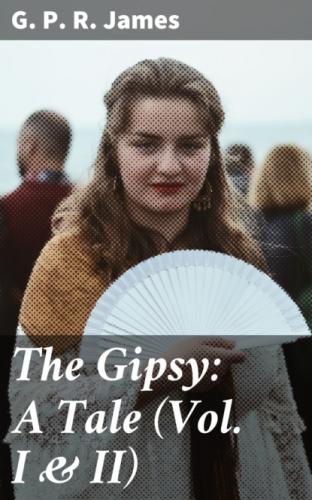"Pharold."
Now, under any ordinary circumstances, the only course which De Vaux would have pursued might have been, to twist up the paper into any strange and fanciful form that the whim of the moment suggested, and put it into the first fire he met with, giving it hardly a second thought. But there were circumstances totally distinct from, and independent of, the letter itself, which gave it a degree of importance far above that which it intrinsically possessed. Edward de Vaux, though he had a slight recollection of a dark-eyed, beautiful creature, whom in his infancy he had called mother, lost all remembrance of her at a particular period of his life, and had never since, that he knew of, heard her name mentioned. He passed, it is true, for Lord Dewry's legitimate son, was received as such in society, and admitted as such by his own family and relations. But, if so, how was it he had never seen a picture of his mother among those of his ancestors, and beside that of his father, which stood in the gallery, and represented him as a man of about thirty-five years of age?--How was it he had never heard his mother's jewels mentioned, though those of the two baronesses who had preceded her were often referred to? How was it that his aunt, Mrs. Falkland, as he inferred from many facts, had never seen his mother? How was it that his father had never spoken her name in his hearing? All this had often struck him as something very extraordinary; and a thousand minor circumstances, which cannot be here recapitulated, had shown him that there was some mystery in regard to his family, which had frequently given him pain. Since his return, however, something more had occurred: two or three words had been spoken by his father, during their dispute concerning Colonel Manners, which had startled him at the time with a suspicion which he had instantly banished, but which now came up again with fearful confirmation of the tidings he had just received. Lord Dewry had declared that he could be deprived of the entailed estates of the barony by a single word. At the time, that expression had but slightly alarmed him; for, well knowing the violence of his father's disposition, and the acts and words of almost insane vehemence to which any opposition would drive him, he had instantly concluded that it was a meaningless threat, spoken to punish him for the spirit of resistance he had displayed. But now it came back in its full force; and he asked himself, what could such words mean, if he were a legitimate child? The estates were entailed on the male heir; he himself was the only male heir in the present line; and if by birth he were the lawful son of Lord Dewry, no earthly power could deprive him of the lands of his forefathers. But his father, who had been educated for the bar before he succeeded to the title, had told him that a word would take them from him. A stranger now repeated the same tale, and pointed more directly to the same conclusion; and all his former recollections changed his bitter doubts into a terrible certainty.
Edward de Vaux bent down his head upon his hands, and covered his eyes, with a feeling of shame and degradation that was hardly supportable. It was not alone one well of bitterness that was opened upon him; but, in whatever direction he turned his thoughts, new gall and wormwood was poured into his cup. If there had been aught on earth of which he had been proud--and, in that instance, his pride, though bridled and restrained by better feelings, had been great;--if there had been any thing on earth of which he had been proud, it had been of his clear descent from thirteen generations of noble ancestors. He had taken a delight, even from boyhood, in tracing the recorded history of each, and in proving that there had not been one, from the founder of the family to his own immediate parent, who had not been well deserving of the rank and station that they held in their native land. He had drawn from his noble birth the moral which noble birth should always afford; and had determined that he, too, would deserve the title that they had received for great deeds; that he, too, would transmit the jewel of hereditary virtue to his children as an heirloom, unimpaired in passing through his hands. He knew that, in the words of a great natural poet,--
Конец ознакомительного фрагмента.
Текст предоставлен ООО «ЛитРес».
Прочитайте эту книгу целиком, купив полную легальную версию на ЛитРес.
Безопасно оплатить книгу можно банковской картой Visa, MasterCard, Maestro, со счета мобильного телефона, с платежного терминала, в салоне МТС или Связной, через PayPal, WebMoney, Яндекс.Деньги, QIWI Кошелек, бонусными картами или другим удобным Вам способом.
